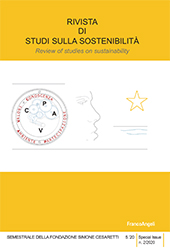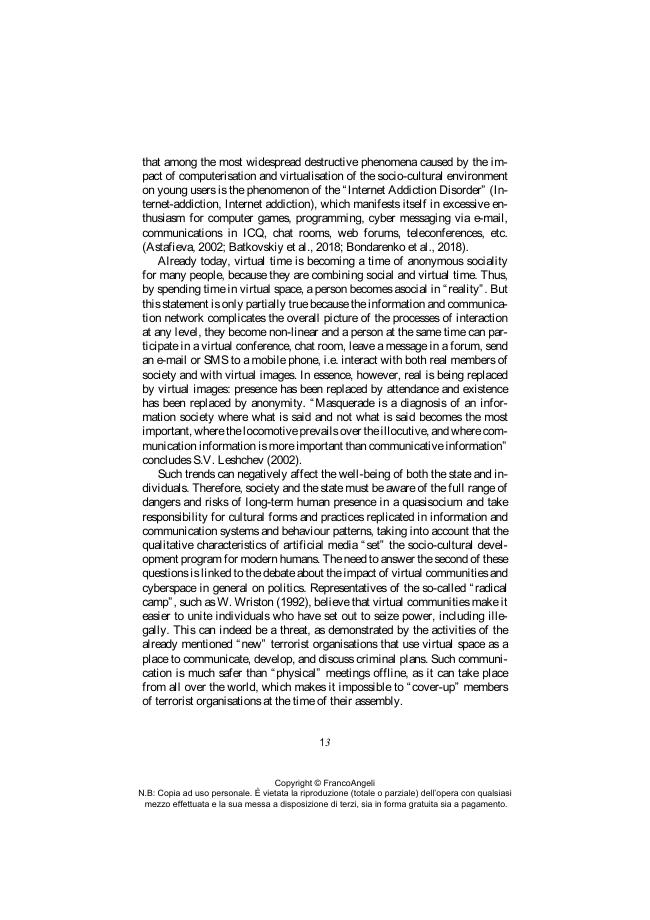Spread of virtual communities as a potential threat to state security and sustainable well-being
7-18 p.
The relevance of the study of virtual communities lies in the fact that Internet communication continues to develop a different form of social interaction. The active formation of virtual communities is facilitated by the development of new information and communication environments, which, through unique technologies based on interactivity, multimedia, globality, anonymity, asynchrony, and low marginal costs, ensure individual communication. Such "social" associations are formed as users who have common interests (discussions, conferences, etc.) or are interested in a specific topic, etc., cross over. Further "zones of mutual interest"are built on these basic theses, which promote mutual understanding and willingness to accept new values. The purpose of the article is to study the concept of a virtual community and determine their negative impact on a person and the state as a whole.
The main method in the study was the method of analysis and synthesis of information. During the analysis of the literature on the above topic, the article explored the concept of a virtual community and its role in the life of society. The negative impact on the person and the state is highlighted. It is determined that virtual culture can pose a potential threat to national security and it is described how to minimize these risks. The practical significance of the study is determined by the fact that the results of the study and the recommendations given by the author can be considered as one of the options for combating the threat to national security from virtual communities. [Publisher's text].
-
Artículos del mismo número (disponibles individualmente)
-
Información
Código DOI: 10.3280/RISS2020-002-S1002
ISSN: 2239-1959
MATERIAS
KEYWORDS
- Information society, communication, virtual culture, danger, relationships



